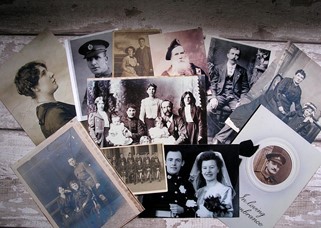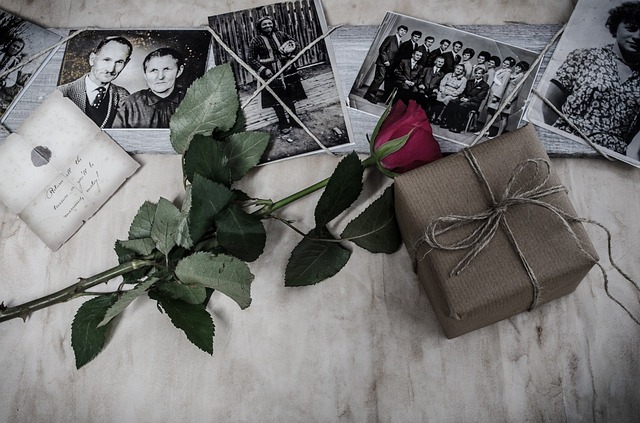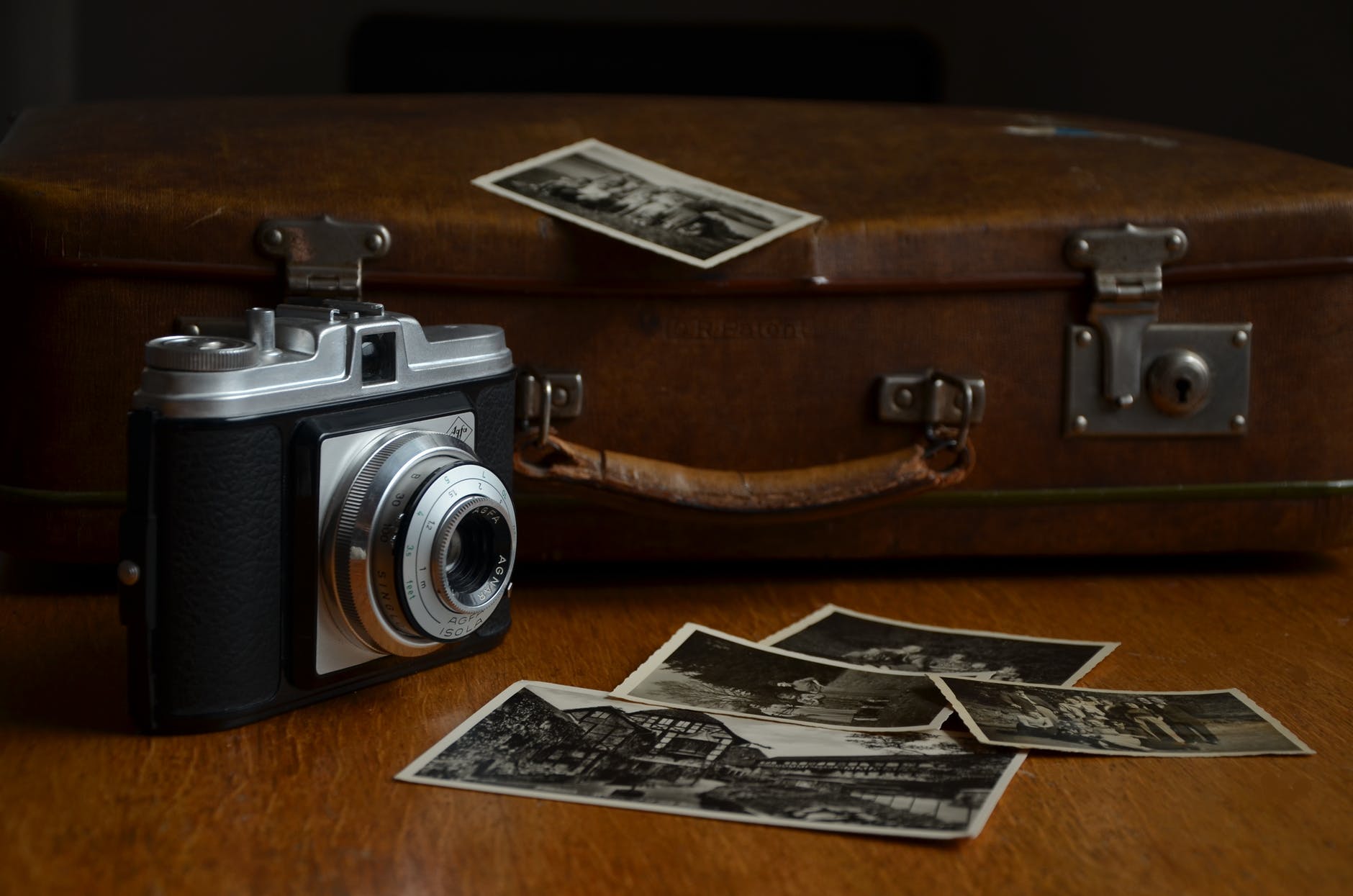
Family History Research— Searching Beyond the Internet
FAMILY HISTORY RESEARCH— SEARCHING BEYOND THE INTERNET
The internet is a great tool for family history research. Unlike the “olden days” when research consisted of searching through a card catalog in a library, and then spending hours thumbing through stacks of books, you can now find seemingly endless information with just the click of a mouse.
However, with family history research, there are times when the internet just doesn’t have the information you need. That doesn’t mean that you should give up on your search, though. It just means you may have to look a little harder–and actually leave your house.
To get started, here are eight great resources to help you locate those hard-to-find records and information that is not available online.
1. The Family History Expert
If your grandparents are anything like mine, they probably have a box somewhere full of old family documents and information.

And, if you’re lucky, that box may contain things like birth certificates and baptismal records, death certificates, or even old family bibles that can help you fill in the missing pieces of your family tree.
Or, if your grandparents are no longer living, check with your parents or your aunts and uncles.
Chances are the box of family treasures was passed down to one of them at some point.
While you may already know some of the data stored in those boxes, you may just get lucky and learn some new information!
2. Libraries
While some would argue that libraries are slowly becoming a thing of the past, there is no denying that they are still a great source for family history research.
Not only do libraries contain books full of historical information, many of them also offer free access to membership-only sites such as Ancestry.com.

3. State and National Archives

Are you looking for your ancestor’s military records from World War I? Census records from 1910?
Or how about the land records for the farm that your family owned for generations?
All of these can be accessed with a visit to a state archives or the National Archives.
The National Archives—which house a plethora of historical documents, including census records, ship manifests, land and title records, military records, and more—can be accessed by writing or calling ahead to make an appointment, and then obtaining a research card upon arrival.
Just make sure that you do your research in advance, to confirm exactly which archive facility houses the information you are looking for.
And, if you are seeking records from countries other than the United States, you’ll need to contact their local or National Archives for access information.
4. Ellis Island
If your ancestors immigrated to the United States between 1855 and 1954, chances are they —along with more than 12 million other immigrants— may have gone through Ellis Island.
The island, which was once used to process incoming immigrants hoping for a better life in America, is now part of the Statue of Liberty National Monument. And the building there that once handled thousands of optimistic immigrants a day is now the home of the Ellis Island National Museum of Immigration.
If you’re hoping to find information about your ancestors who passed through the famous island, check out the Family History Center, located on the first floor of the museum.
There you’ll find 65 million searchable records, which include ship manifests as well as immigration documents.

5. Church or Parish Archives
Believe it or not, there was once a time when birth certificates, social security cards, marriage records, and death certificates did not exist.
If you’ve managed to research your family back as far as the early 1800s, you are likely to run into problems finding vital records for them. That’s because things like birth certificates were not required by most states until at least the late 1800s (and sometimes later).

So, without those important documents, how do you find out when your ancestors were born, when they got married, or when they died?
Luckily, prior to official vital records, church or parish archives kept track of a lot of that information. And a lot of those archives still hold those records today.
If you are able to track down the town in which your ancestors resided, there is probably some sort of record of them in the local church’s archives.
Just contact the church to see if they allow public access to those records. Or, if that is not possible, ask if they have someone there who can do a search for you and make copies of any relevant documents.
6. Courthouses
When most people think of courthouses, genealogical research is not usually what comes to mind.
So, it may come as a surprise to hear that courthouses can actually be a great resource for finding information about your family history.
While most courthouses don’t house vital records, (those can generally be found in a separate office within the state’s Department of Health), one thing that they do have is land and tax records.

They also frequently house estate records, probate records, and property records.
As long as you are willing to roll up your sleeves and do some page-by-page digging, these records can help you discover how much land and property your ancestors owned, what kinds of things they willed to their children, and frequently even the names of all of their children (as well as their spouses and children!).
7. Cemeteries
Cemeteries may not be a popular place to hang out, but they really are chock full of valuable information. Not only can they give you peace of mind knowing where your ancestors’ final resting place is, but the gravestones can also give you hints about their dates of birth and death.

They can also frequently clue you in to other things, like military service or religious and cultural associations.
But, before you can go sleuthing through the cemetery, you first need to figure out where your ancestors were buried. This information can frequently be found in obituaries, death certificates, and family bibles, or through sites like findagrave.com.
If those resources don’t turn up any answers, check the local library for books on cemeteries in the area (and who is buried in them).
Once you have determined where your ancestors were buried, check with the cemetery’s office (if it has one) or the local city hall for a map of where the graves are located.
Just be aware that many smaller cemeteries do not have offices to help, and not all city halls are able to provide this information. In those cases, you may just need to dust off your hiking shoes and take a walk through the cemetery. Luckily, once you locate one family member’s grave, it’s likely that the others are somewhere nearby.
8. Genealogical and Historical Societies
For ancestry research, genealogical and historical societies can be a true goldmine of information.
These societies are charged with researching, preserving, collecting, and interpreting historical information for the areas in which they are located (and frequently beyond).
Many of them are staffed with experienced genealogists and historians who are happy to help you track down your long-lost ancestors.

And sometimes they even host free events and classes with tips and tricks for conducting genealogical research.
Just be sure to give them a call before you show up, to make sure that they are open for visitors.
Related Content
- 0 Comment
Subscribe to Newsletter
- How Can SharePoint Be Used To Organize and Disseminate SOPs?
- Planning the Perfect Genealogy Research Trip: A Step-by-Step Guide
- From Silly to Awesome: How Words Change Meaning Over Time
- The Psychology of Font Choice: How Typography Impacts Content Engagement
- How to Distribute SOPs for Maximum Usability









